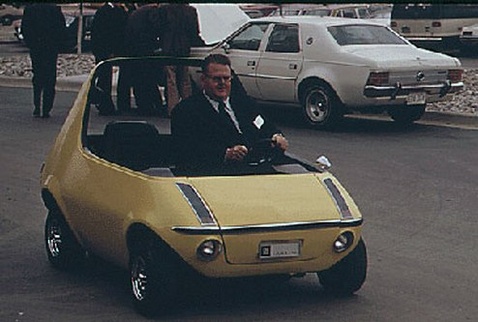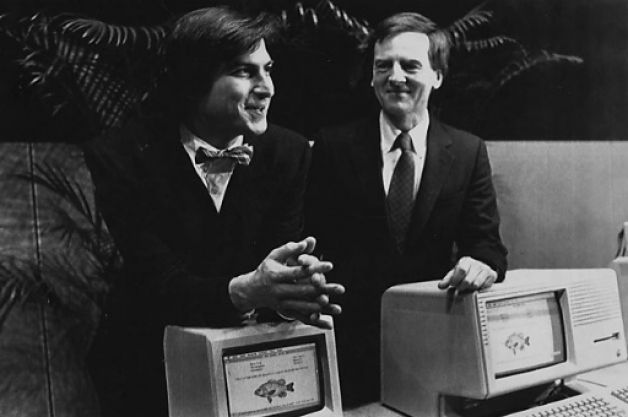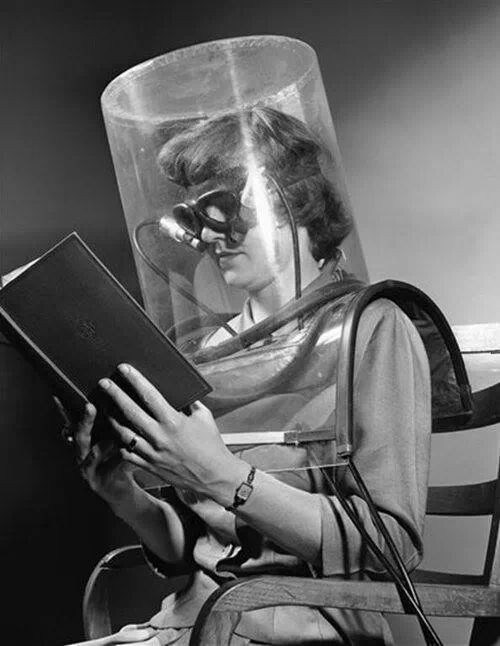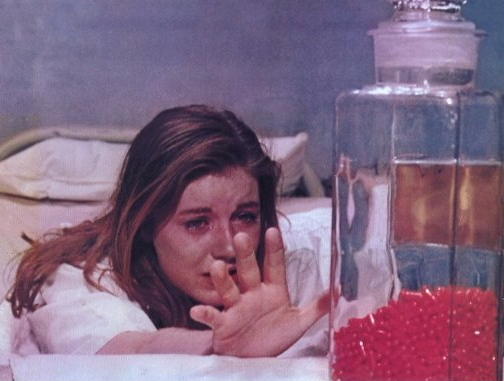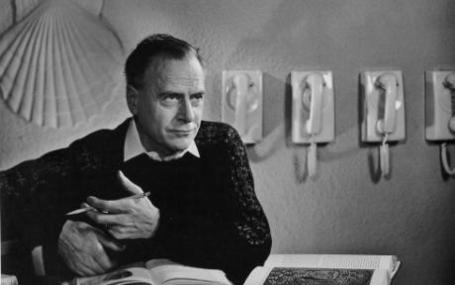Dick Cavett and Eddie Murphy discussing the use of the N-word in Huckleberry Finn, both freely saying the whole word repeatedly. I would assume this is the Cavett show iteration that aired on USA cable in 1985-86, but it looks as if it could have been shot in his garage in front of hobos. Lousy audio but worth it.
You are currently browsing the archive for the Videos category.
Tags: Dick Cavett, Eddie Murphy
The opening of “Fran Lebowitz on Race,” a 1997 Vanity Fair piece that was a revelation for a country that couldn’t yet visualize its first African-American President nor the Birther backlash that landmark would evoke:
“Do you think the proper way to talk about race now is to talk about multiculturalism?
I came from a town where there were two races, black and white. There were a few Chinese people, and this may sound shocking, but I had no idea they were a different race. I thought they were a different nationality, like Italian or French. Now you have people coming here from Cambodia, from Egypt, from Colombia, from places you never thought would be sending us their huddled masses. I mean, surely 20 years ago no one could have imagined a more unlikely pair of words than ‘Korean deli.’ And all these people think of themselves as being members of different races. Ethnic groups have taken on the same weight as racial groups, with the same demands, the same notion of themselves.
To me, this plays into the hands of the people in power — the white people. If you want to ensure generation after generation of Mexican gardeners in California, you insist on bilingual education in the grammar schools. You can pretend that you would just as soon have your cardiologist speak to you in Spanish, but if you don’t speak Spanish, you would just as soon not.
If you’re black, don’t you say to yourself, ‘We’ve been here for a zillion years, and here are all these people coming along, acquiring power by saying they’re powerless acquiring power by equating their lot with ours’? Blacks are the standard of oppression. People are always taking appalling historical events that one would hope are unparalleled and making absurd and immoral equations: the police raid the Stonewall Inn and instantly and forever it’s ‘Bull’ Connor turning the fire hoses on the marchers in Birmingham; antiabortion maniacs throw fetuses at abortion-performing doctors and an absolutely unembarrassed analogy is made to a lynch mob. These things are categorically unrelated, as are most things. Things are very rarely exactly like other things. If they were, people would be less baffled in general, and perhaps less given to such statements as ‘This is like the Holocaust.’ Nothing is like the Holocaust. Not that there haven’t been other tragedies, other genocides. But simply that they were peculiarly, specifically, intrinsically like themselves. Genocides are like snowflakes, each one unique, no two alike. You can’t go around making these horrendously invalid comparisons. It is disgraceful and annoying. If you were in Auschwitz, you undoubtedly feel that on top of having been in Auschwitz you shouldn’t also have to have your experience used to justify, say, gay marriage.
What is actually served by multiculturalism and all things attendant to it is the power of white people, and this, despite any and all such academic quibbling, is primarily accomplished by the continuing oppression of blacks. Because even though the conversation now includes all these other elements, the truth is that the farther you are from being black, the more likely you are to assimilate, to be more like white. The more you are like white, the less trouble you have because the more you are like white, the less trouble you are.”
••••••••••
Lebowitz comments on NYC and how Andy Warhol’s joke got out of hand:
Tags: Fran Lebowitz
Before we realized that crowds might have wisdom, demographers worried mightily about overpopulation. The recent renaissance in demography has seen a shift in focus. From the Economist:
The main concern of demographers in their heyday (the 1970s and 1980s) was high fertility and the total number of the world’s people. This was the period of The Population Bomb, a bestseller by a biologist, Paul Ehrlich, which argued that the world could not feed itself. An international family-planning movement sprang up. Top-down programmes attempted to control the total size of national populations. China’s one-child policy is the best known and most extreme of these.
Now though, as John May, formerly of the World Bank and now Georgetown University, shows in World Population Policies, the focus of demographers has switched from the overall size of populations to their composition—that is, to age groups and their relation to one another. Instead of high fertility rates, demographers study ageing, dependency ratios, the ‘demographic dividend’ (a bulge of working-age adults) and distorted sex ratios, which result when millions of parents choose the sex of their children, often by aborting baby daughters.
The result, suggests Mr May, is that demography is more complex, if less dramatic, than it used to be.”
••••••••••
A 1972 UN film about threats to our environment, which features Paul Ehrlich. Also on hand: Indira Gandhi, Kurt Waldheim, Robert S. McNamara, etc.
Tags: Paul Ehrlich
William F. Buckley and B.F. Skinner, in Illinois in 1971, discussing behaviorism and freedom.
See also:
Tags: B.F. Skinner, William F. Buckley
Astronauts were always, to some degree, considered expendable modern gladiators. Astronautical engineer Robert Zubrin lays out in plain terms the high cost of taking extraordinary measures to safeguard their lives.
Tags: Robert Zubri
John Sculley, the man who fired Jobs and oversaw the development of Newton, is interviewed by the Guardian about cloud computing, especially about health care in the age of the cloud. But he took a minute to explain why he thought the Newton digital assistant failed:
“Speaking of connected devices, might one of the flaws in the Newton have been it lack of connectivity – something that now exists through mobile broadband? Sculley has, of course, had a long time to reflect on this.
‘Well, I think the idea [of Newton] was right, it was just 20 years ahead of its time. So actually, a lot of people were able to see where the industry’s going, the hardest part is to figure out when it’s going to happen.
‘In the case of the PDA, the idea was right – that the content and communication and computing were going to converge – but I think we greatly underestimated that we needed broadband, that we need far more powerful devices, that we needed something a lot more powerful in the background which we now know as ‘cloud’ to be able to handle the tremendous amount of data, and connecting people up through social networking. So it was a good idea, but it was just several decades too early.'”
••••••••••
The instructional video that came with the Newton:
Tags: John Sculley
From 1981’s My Dinner with Andre, a debate about technology, the comfort and numbness it brings, and how it subtly changes who we are:
Wally:
Last summer Debbie and I were given an electric blanket. I can tell you it is just such a marvelous advance over our old way of life. And it’s just great. But it is quite different from not having an electric blanket. And I sometimes sort of wonder, What is it doing to me? And I mean, I sort of feel that I’m not sleeping quite in the same way.
Andre:
No, you wouldn’t be.
Wally:
And I mean, uh…my dreams are sort of different. And I feel a little bit different when I get up in the morning.
Andre:
I wouldn’t put an electric blanket on for anything. First, I might be worried that I’d get electrocuted. No, I don’t trust technology. But I mean the main thing Wally is that I think that that kind of comfort just separates you from reality in a very direct way.
Wally:
You mean…
Andre:
I mean if you don’t have that electric blanket, and you’re apartment is cold, and you need to put on another blanket or go into the closet and pile up coats on top of the blanket you have, well then you know it’s cold, and that sets up a link of things. You have compassion for the person–well, is the person next to you cold? Are there other people in the world cold? What a cold night! I like the cold, my god, I never realized. I don’t want a blanket. It’s fun being cold. I can snuggle up against you even more because it’s cold–all sorts of things occur to you. Turn on that electric blanket and it’s like taking a tranquilizer, it’s like being lobotomized by watching television. I think you enter the dream world again. What does it do to us, Wally, living in an environment where something as massive as the seasons or winter or cold don’t in any way effect us? I mean, we’re animals, after all. I mean, what does that mean? I think that means that instead of living under the sun and the moon and the sky and the stars, we’re living in a fantasy world of our own making.”•
In 1988, his dreams dashed and reputation destroyed, John DeLorean was living in Manhattan, now a born-again Christian, still believing he would get another chance. He granted a rare interview to a local TV station from his old stomping grounds in Detroit. Funny to see him strolling through Central Park.
More DeLorean posts:
Tags: John DeLorean
From an interview at 3:A.M. with P.D. Smith, author of City: A Guidebook for the Urban Age, a passage about the way views of urban life have evolved:
“3:AM: There is a certain, largely religious, strand of thought that connects cities with evil, and the pastoral or rural with innocence and morality. One can see it now in the idea of middle America, opposed to the coastal cities, and one can also see it in Victorian proponents of city reform. Why do you think this strand of thought exists, and how does it affect cities?
P.D. Smith: The idea of the ‘sin city’, of Sodom and Gomorrah, is certainly a strand in Judeo-Christian thought. It’s interesting to note that the first city builders in Mesopotamia did not long for some lost Garden of Eden, a bucolic Golden Age. Instead they believed their gods gave them the city. It was their home and where they were meant to be. But, yes, Augustine condemned the City of Man and directed people’s gaze towards the City of God. These ideas have been very influential. In the US, long before gangsta rap the city was associated with crime, violence and moral corruption. The city, with all its attendant social problems, was seen as a reminder of the Old World. The New World was meant to be a land of opportunity, of wilderness and far horizons, not Dickensian slums and urban crime. These ideas feed a deep distrust of cities in America. It surfaces in Martin Scorsese’s Taxi Driver, where Travis Bickle condemns New York’s crime: ‘This city here is like an open sewer, you know, it’s full of filth and scum.’ It’s a rich subject both in the US and in Britain. In fact, it’s something I would like to explore in another book.”
••••••••••
“Whores, skunk pussies, buggers, queens, fairies, dopers, junkies, sick, venal”:
Tags: P.D. Smith
One more post about Jacqueline Susann and then I promise I’ll stop. This 1967 appearance by Susann on What’s My Line? isn’t particularly riveting, even though it was made in the wake of her jaw-dropping success as a debut novelist with Valley of the Dolls. What’s amusing is the cultural earthquake quietly occurring during this short segment. This brainy program had just been cancelled, a victim of a country’s changing mores. Susann was representative of a new America, a post-Pill society, one that was leaving literate panel shows in its wake. The “barbarians” had crashed the gate. It might seem like the trashy author’s rise and the classy show’s demise was a sad commentary on our nation, but it was really a sign of an improving America, one that was more open, more democratic, more inclusive and more honest. Sometimes I get weary of our in-your-face culture, but I’ll always opt for oversharing instead of no sharing, for too much information rather than not enough.
Tags: Jacqueline Susann
A thesis statement from the recent Global Future 2045 Congress in Moscow.
Marshall McLuhan, in 1977, before electricity truly started to flow, recognizing early how new media would fray secrecy and expose information. But what if we know about everything and we still don’t do anything? What then?
Tags: Marshall McLuhan
The Williams WASP X-Jet, 1974.
A very cool 1986 profile of Jim Whiting, the machine-friendly artist who invented the mechanical family for Herbie Hancock’s landmark Rockit video.
Tags: Herbie Hancock, Jim Whiting
The Russian city of Berezniki was built atop an undergound mine during the dark days of Soviet-era madness, so it’s constantly prone to rapidly forming sinkholes capable of swallowing people or buildings whole. In order to safeguard the more than 150,000 residents, scientists constantly monitor the situation with a dizzying array of surveillance cameras. But even that may not be enough to save the burg. From Andrew E. Kramer in the New York Times:
“Mining engineers first tried to maintain the supports by pumping in saltwater, intending to raise the salinity of the floodwater to the saturation point before the structure collapsed, but that did not work.
After that, the local government adopted the policy in effect today, of careful observation and early warning: geologists, surveyors and emergency personnel use a panoply of high-technology monitors. These include the video surveillance system, seismic sensors, regular surveys and satellite monitoring of the changes in altitude of roofs, sidewalks and streets.
‘We will fight the holes with science,’ the mayor, Sergei P. Dyakov, said in an interview. The city will not need to relocate, he said, because engineers believe that no new holes will open. Much of the mine was filled before the flood, he said, and the sinkholes occurred in an anomalous area that had not been filled in.
But federal officials and company executives are debating whether to relocate the entire city to the opposite bank of the Kama River, where the bedrock is solid.”
Tags: Andrew E. Kramer, Sergei P. Dyakov
Michel Gondry, who is never fully awake, talks to Beck about dreams.
Tags: Beck, Michel Gondry
All this stuff about Jacqueline Susann got me thinking about another author of popular trash from before my time, Harold Robbins, who was the best-selling novelist in the world about 40 years ago, specializing in literature that was most suitable for the beach or masturbation, though preferably not both at the same time. From 1971, a really fun portrait of the wet-dream merchant.
Mike McGrady, an ink-stained wretch from an era when it seemed like newsprint would flow forever, just passed away. More than his journalistic career, McGrady, to his horror, was best known for Naked Came the Stranger, a trashy 1969 hoax novel that he co-wrote with a couple dozen other Newsday reporters and editors. Meant as a satire of Jacqueline Susann and similar popular writers of the day, it was initially published earnestly under a nom de plume and sold quite well. From Margalit Fox’s New York Times obituary of the late scribe:
“Intended to be a work of no redeeming social value and even less literary value, Naked Came the Stranger by all appearances succeeded estimably on both counts.
Originally issued by Lyle Stuart, an independent publisher known for subversive titles, the novel was a no-holds-barred chronicle of a suburban woman’s sexual liaisons, with each chapter recounting a different escapade:
She has sex with a mobster and sex with a rabbi. She has sex with a hippie and sex with at least one accountant. There is a scene involving a tollbooth, another involving ice cubes and still another featuring a Shetland pony.
The book’s cover — a nude woman seen from behind — left little to the imagination, as, in its way, did its prose:
‘Ernie found what Cervantes and Milton had only sought. He thought the fillings in his teeth would melt.’
The purported author was Penelope Ashe, who as the jacket copy told it was a ‘demure Long Island housewife.’ In reality, Mr. McGrady had dreamed up the book as ironic commentary on the public’s appetite for Jacqueline Susann and her ilk.”
••••••••••
A 1975 adaptation from the director of The Opening of Misty Beethoven:
Tags: Jacqueline Susann, Margalit Fox, Mike McGrady, Penelope Ashe
Slavoj Žižek, genius and fool, using questionable geological evidence to make a case for humans embracing technology over nature.
Tags: Slavoj Žižek
Disney research potentially turns all the world into a touchscreen.
Noam Chomsky and Michel Foucault have a bull session on Dutch TV in 1971.
Tags: Michel Foucault, Noam Chomsky



